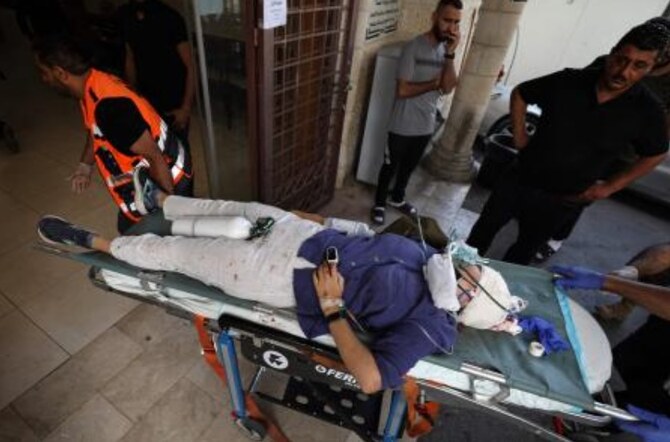RAMALLAH, West Bank: A dual US-Turkish citizen taking part in a protest against settlement expansion in the Israeli-occupied West Bank died of her wounds on Friday after being shot in the head by Israeli troops, the official Palestinian news agency WAFA reported.
Both the US State Department and Turkiye’s Foreign Ministry confirmed the death of Aysenur Ezgi Eygi. The Turkish ministry said she was killed by Israeli soldiers and described the incident as a “murder carried out by the Netanyahu government.”
The Israeli military said it was looking into “reports of that a foreign national was killed as a result of shots fired in the area. The details of the incident and the circumstances in which she was hit are under review.”
US State Department spokesperson Matthew Miller said: “We are aware of the tragic death of an American citizen, Aysenur Eygi, today in the West Bank. We offer our deepest condolences to her family and loved ones.
Miller added: “We are urgently gathering more information about the circumstances of her death, and will have more to say as we learn more. We have no higher priority than the safety and security of American citizens.”
Fouad Nafaa, the head of the Rafidia Hospital in Nablus, told Reuters the woman arrived at the hospital in a very critical condition, with a serious head injury.
“We tried to perform a resuscitation operation on her, but unfortunately she died,” he said.
WAFA said the incident occurred during a regular protest march by activists in Beita, a town near the city of Nablus that has seen repeated attacks by nationalist Jewish settlers.
“Israel is trying to intimidate all those who come to the aid of the Palestinian people and who fight peacefully against the genocide. This policy of violence will not work,” the Turkish Foreign Ministry said in its statement.
A rise in violent attacks by Israeli settlers on Palestinian villages in the West Bank has stirred growing anger among Western allies of Israel, including the United States, which has imposed sanctions on a number of individuals.
Several weeks ago around 100 settlers attacked the village of Jit, in the northern West Bank, drawing worldwide condemnation and an Israeli government promise of swift action against anyone found guilty of violence.
Palestinians and human rights groups regularly accuse Israeli forces of standing by as attacks take place and even joining in themselves.
















